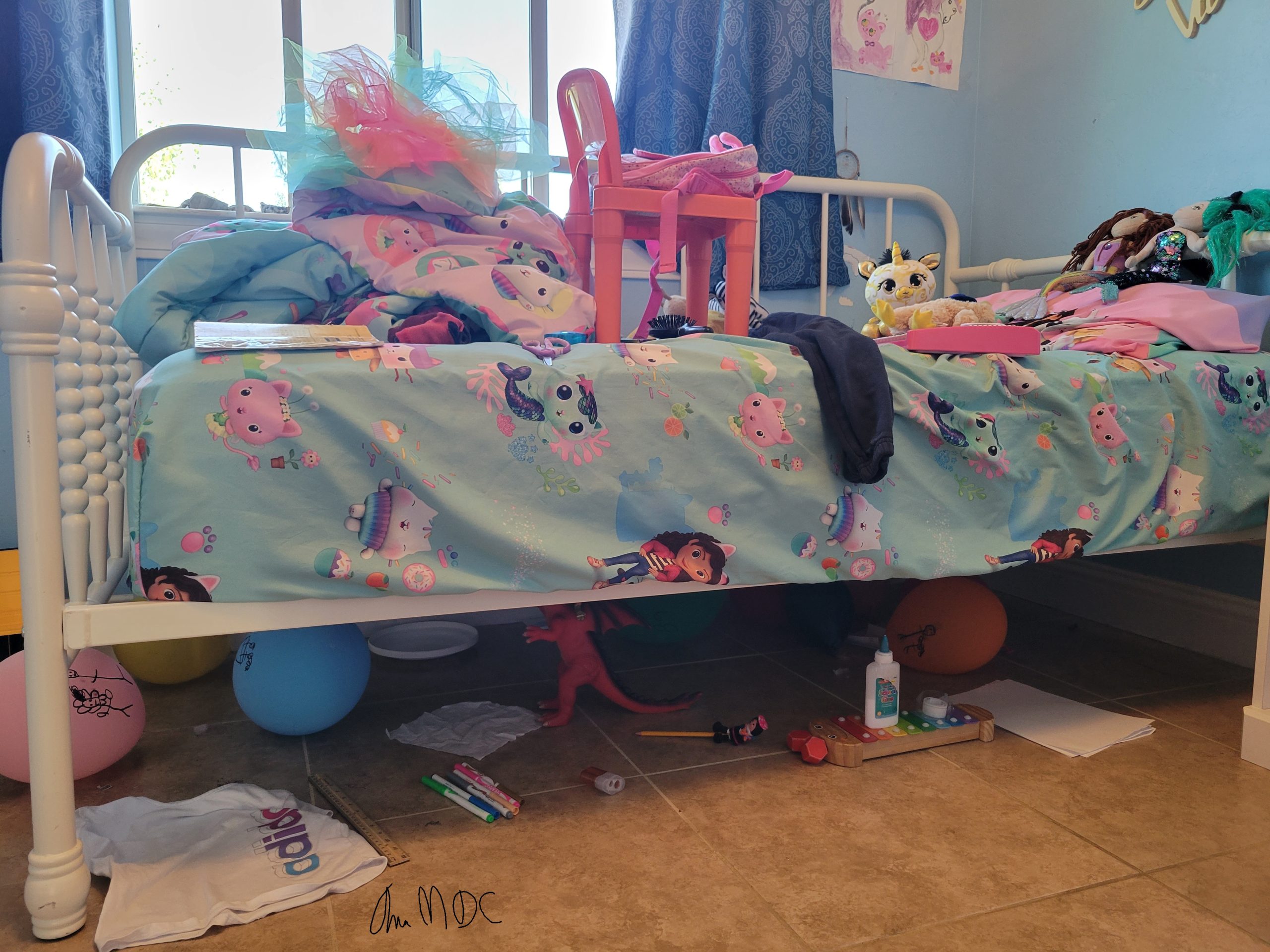39 Prepositions and prepositional pronouns
Most common prepositions in Spanish include:
- De=of, from
- En=in, at, on
- Con=with
- Sin=without
- A=to
- Desde=from, since
- Hasta=to, until
- Para=in order to, towards
- Por=by
- En OR encima de=on, above
- Debajo de=under, below, benath (no difference)
If you are going to place a pronoun after the preposition, you need to include:
- Mí=me after a preposition: de mí, en mí, sin mí, a mí, para mí
- Ti=you after a preposition: de ti, en ti, sin ti, a ti, para ti
Examples:
- ¿Tú piensas en mí?=Do you think about me?
- Sin ti no puedo vivir=Without you I can’t live.
- Este regalo es para ti=This gift is for you.
- No voy a salir sin ti=I’m not going to leave without you.
All others are the same as subject pronouns:
- Yo trabajo con ella. (=I work with her)
- Todos los días pienso en él. (=Everyday I think in him).
- Yo no quiero ir con usted. (=I don’t want to go with you-formal)
- ¿Por qué estás enojado con nosotras? (=Why are you angry with us-feminine?)
- Yo los conozco bien a ellos (=I know them to them very well.)
After the preposition CON=with, the preposition collapses with the next pronoun forming a unique word:
- with me=contigo
- with you=conmigo
Examples:
- Yo quiero salir contigo=I want to go out with you.
- ¿Tú estás enojado conmigo?=Are you angry with me?
- Me gusta estudiar contigo=I like to study with you.
- Mi papá habla por teléfono conmigo=My father talks over the phone with me.
Sample conversations
Stating names of companion
Conjugate in the present indicative and add companion:
A: ¿Con quién __________ (add tú verb)? =With whom do you __________?
B: Yo __________ (add yo-verb) con __________ (add name of companion).
Sample verbs: vivir (=to live), comer (=to eat), trabajar (=to work), textear (=to text), janguear (=to hang out)
Companion: mi novio OR mi novia (=boyfriend or girlfriend), mi amigo OR mi amiga __________ (add name), mi compañero OR mi compañera de clase (=classmate) OR de trabajo (=coworker) OR de cuarto (=roommate) __________ (add name)
Inviting someone to do something with you:
Invite someone to do something by adding a verb in the infinitive, and picking the right form CONMIGO or CONTIGO:
A: ¿Quieres __________ (infinitive) conmigo OR contigo?
B: Sí, quiero __________ (infinitive) conmigo OR contigo.
- Quieres pronounced /kyéres/=you want
- Quiero pronounced /kyéro/=I want
Sample verbs for invitation: barrer (=sweep), bailar (=to dance), salir (=to go out), jugar juegos de video (=play video games), venir (=come here), caminar (=to walk), masticar chicle (=to chew gum), pasar el rato OR janguear (=to spend the time), invertir dinero (=invest money), arrendar un apartamento (=to rent an apartment)
If you refuse, state why:
No, no quiero __________ (infinitive) contigo porque (=because) __________________________ (add reason for refusal).
Expressions that justify your refusal: tengo que estudiar (=I have to study), tengo que trabajar (=I have to work), no tengo dinero (=I don’t have money), estoy cansado OR cansada (=I’m tired), mi mamá no me deja (=my mom doesn’t let me), no veo bien (=I don’t see well), no oigo bien (=I don’t hear well), estoy lesionado OR lesionada (=I’m injured)
On and below
Describe the following picture by adding the words ENCIMA DE (=on) or DEBAJO DE (=under):
A: ¿Dónde está EL or LA __________ (=add item)?
B: Está ENCIMA DE or DEBAJO DE la cama.

Items: Camiseta (=Tshirt), cama (=bed), marcadores (=markers), mochila (=backpack), pegante (=glue), cobija (=blanket), papel (=paper), unicornio (=unicorn), almohada (=pillow), globo (=balloon), plato (=fressbee), dragón (=dragon), silla (=chair), sacapuntas (=sharpener), cepillo (=brush), pantalones (=pants), falda (=skirt), cinta (=tape), cuaderno (=notebook), pañuelo (=tissue)
